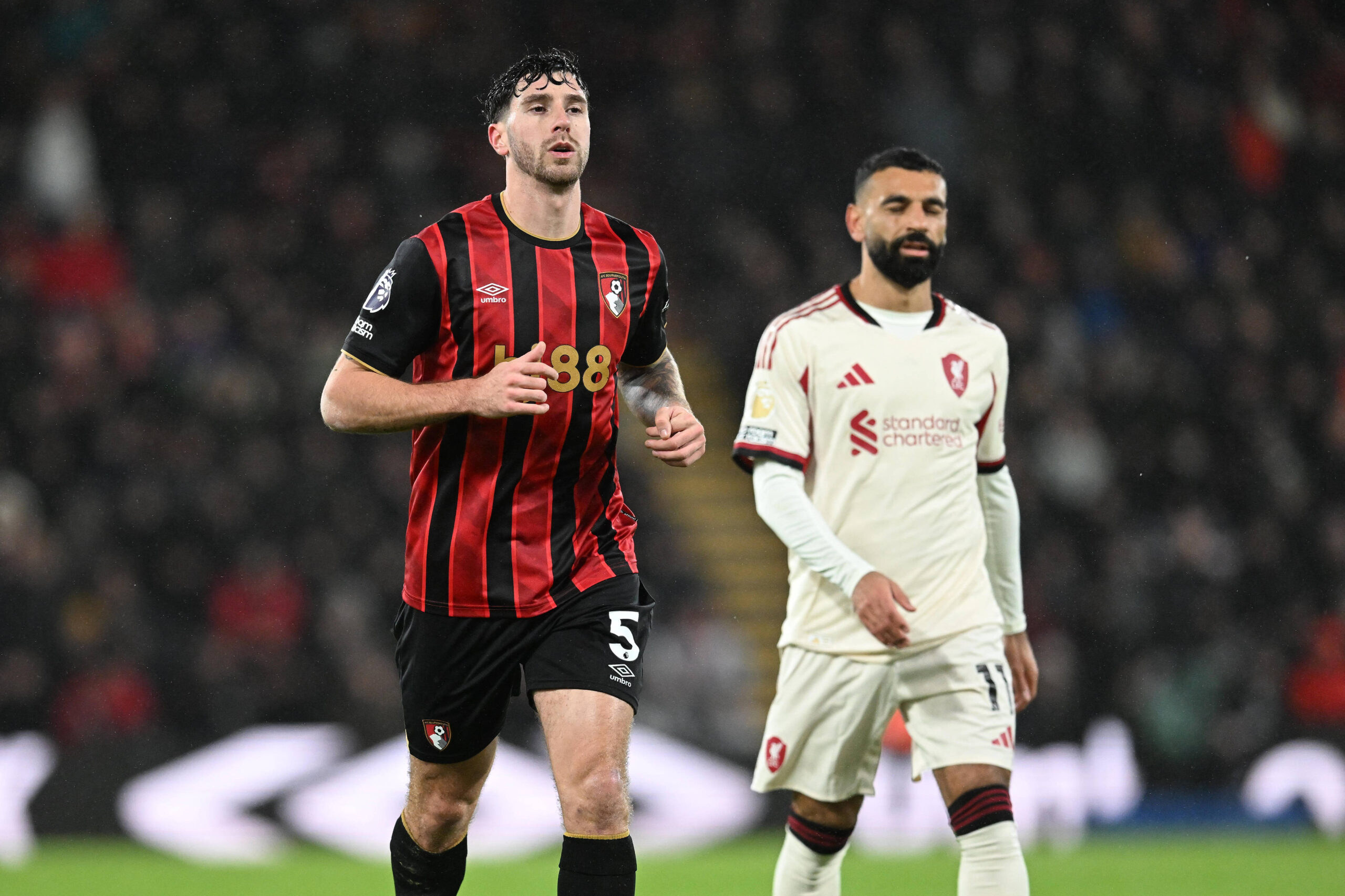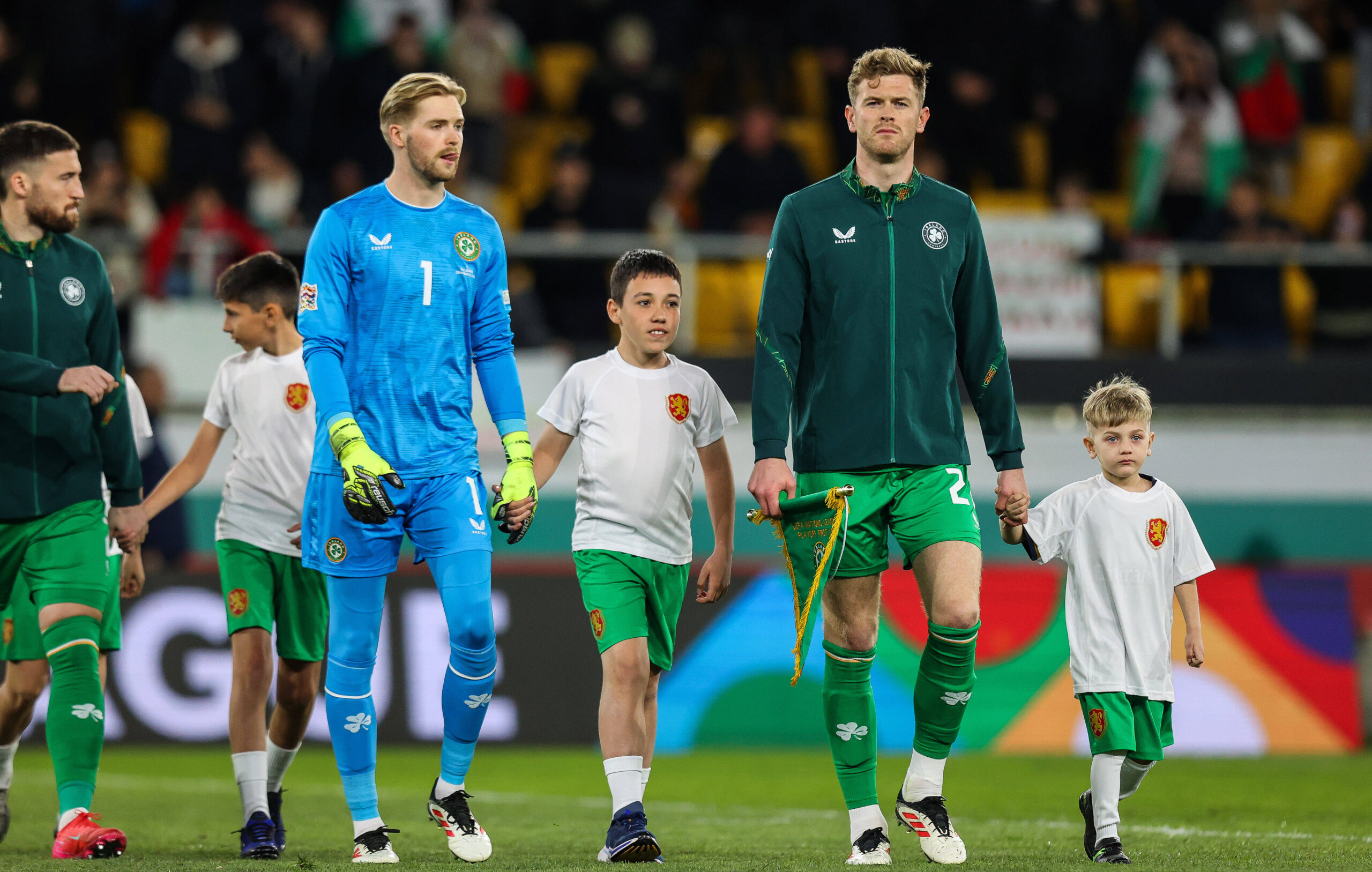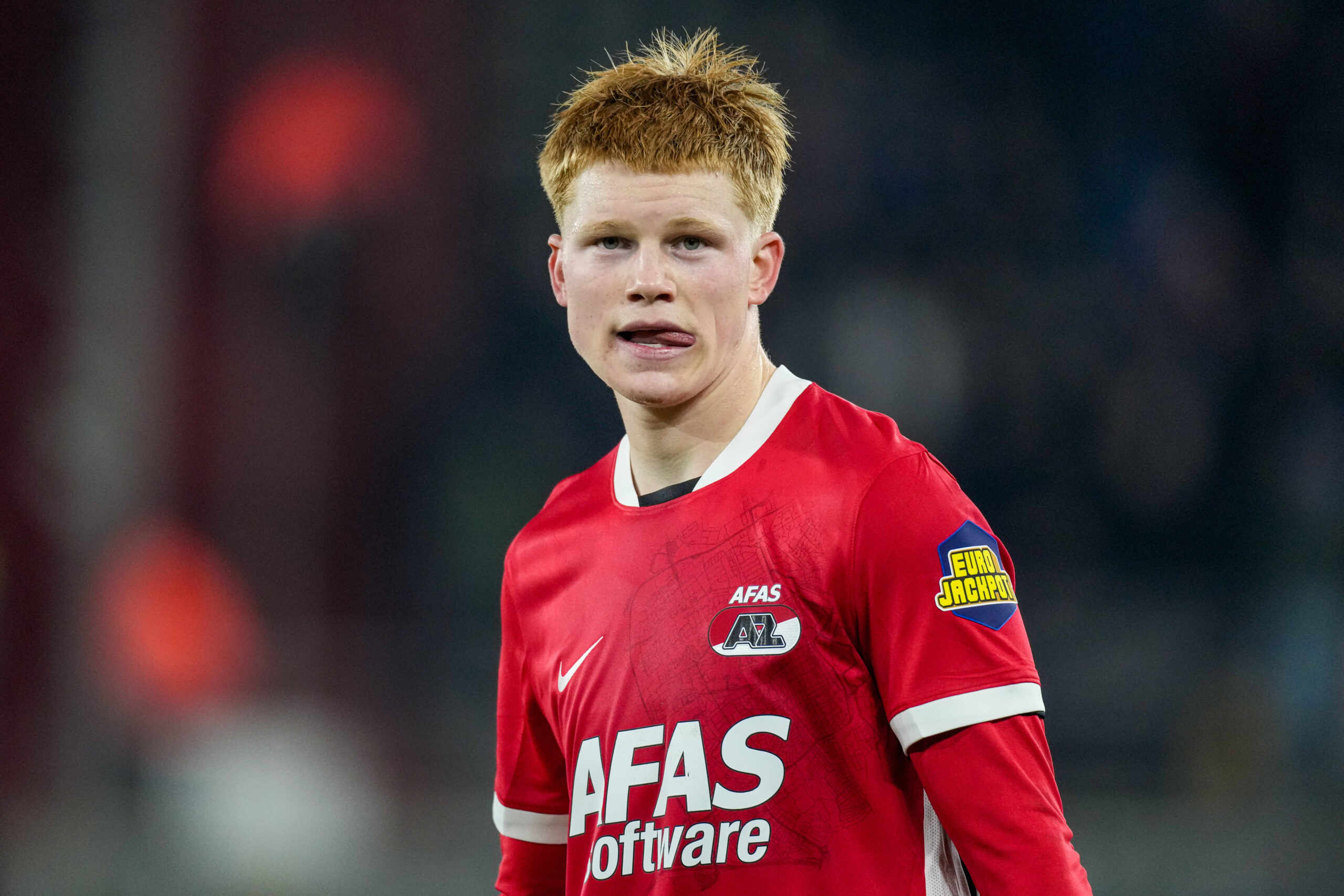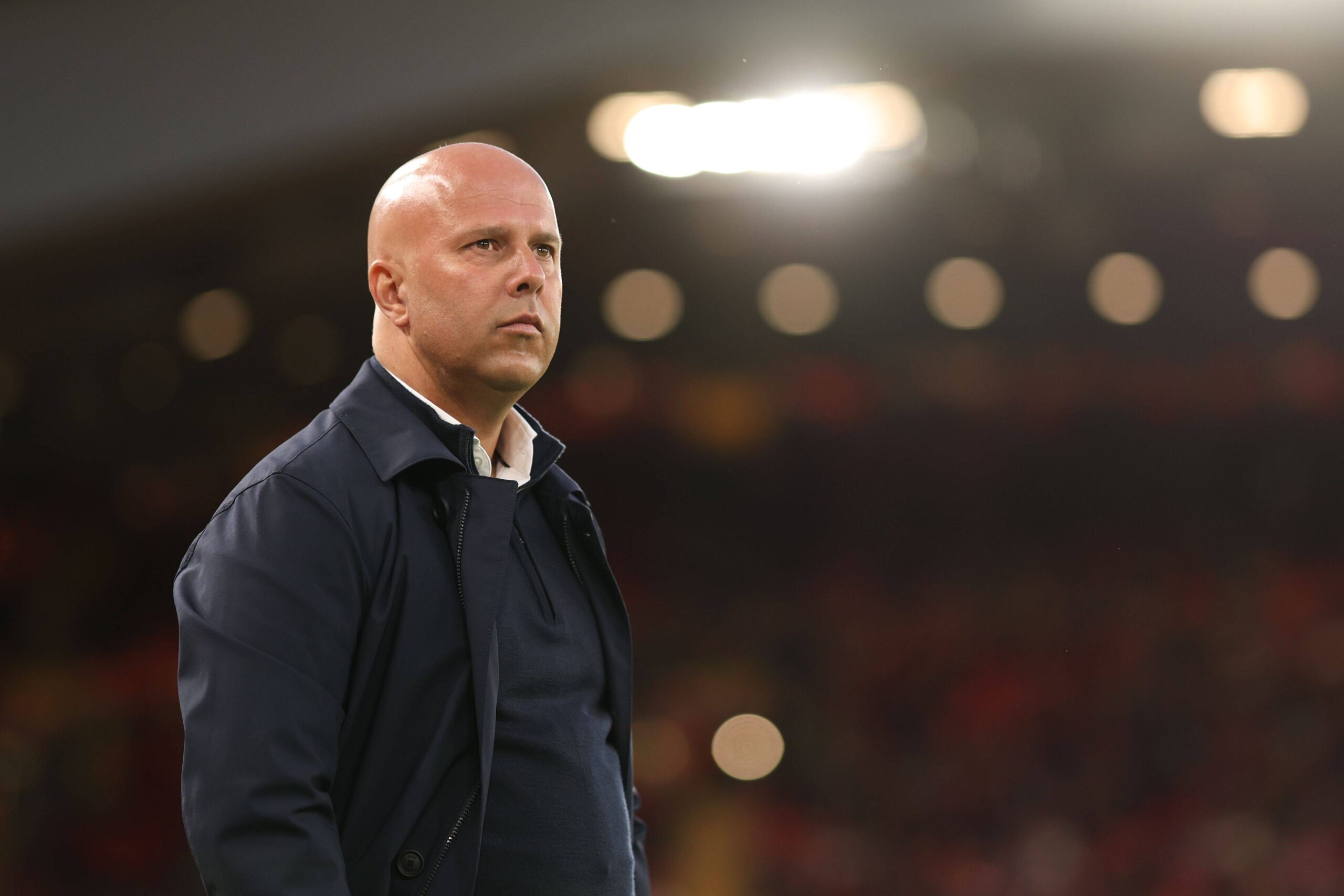LFC.SUpporters
You'll Never Walk Alone
Anfie ldindex com
Liverpool tipped to make move for 29-year-old Premier League star

Liverpool’s summer business is already beginning to take shape and, if this report proves accurate, Jeremy Jacquet will be only the first step. Credit must go to Anfield Watch, who first outlined the direction of travel, noting that “Jeremy Jacquet will only be the beginning of Liverpool’s summer arrivals.”
The deal for Jacquet, agreed ahead of his July arrival, has been positioned as a necessary move in an area where depth has been stretched. Yet the more interesting aspect of the report lies in what comes next. Liverpool are not expected to stop at one centre back, nor even two, as wider contract realities begin to bite.
Defensive Uncertainty Driving Recruitment StrategyThe article highlights an uncomfortable truth at Anfield. “The reality is that Ibrahima Konate could be on his way out as his contract expires and he’s yet to extend.” Add to that the long standing interest in Joe Gomez, who “almost left to join AC Milan last summer,” and suddenly Liverpool’s defensive depth looks fragile.
With Gomez’s contract running until 2027, the suggestion that Liverpool may choose to cash in rather than risk stagnation feels plausible. As the original piece puts it, “This would require another addition at the back, and there is an obvious solution.”
That solution, according to Anfield Watch, is Marcos Senesi.
 Photo: IMAGO
Familiar Face Fits Slot’s Thinking
Photo: IMAGO
Familiar Face Fits Slot’s Thinking
Senesi’s profile ticks several boxes that align neatly with Liverpool’s current needs. His Bournemouth contract expires in the summer, making him a free agent, a significant factor in an era of more controlled spending. He also brings Premier League experience and versatility, “capable of playing in a number of different roles across the back four.”
Crucially, there is a pre existing relationship. “Most importantly, Arne Slot knows him well,” the article states, referencing their shared time at Feyenoord during the 2021-22 season. That familiarity matters. Slot values tactical intelligence and positional flexibility, qualities Senesi has shown consistently.
With Jacquet and Giovanni Leoni both young options, the logic of balance is clear. “Given Liverpool are going to have two very young centre backs in Jacquet and Giovanni Leoni, bringing in Senesi makes a lot of sense.”
Experience Sometimes Trumps PolicyAt 29, Senesi does not neatly fit Liverpool’s usual recruitment profile. The article acknowledges this directly, noting that “The Argentine is not someone Liverpool would normally look at.” However, precedent exists. James Milner and Wataru Endo were similarly pragmatic signings, breaking policy to strengthen the squad.
Senesi’s reputation also deserves attention. Described as “an underrated player,” he has been “a key pillar for Bournemouth over the last couple of years,” even if others attracted more headlines. The conclusion from Anfield Watch is firm. “After Jacquet, we expect Senesi will be the next signing to walk through the doors at the AXA training centre.”
Our View – Anfield Index AnalysisFrom a Liverpool supporter’s perspective, this report feels both sensible and slightly underwhelming. On paper, Senesi ticks boxes. Free transfer, Premier League proven, and trusted by Slot. Yet fans will rightly question ambition. If Konate leaves and Gomez follows, replacing them with Jacquet and Senesi feels like a gamble on stability rather than progression.
There is also the age debate. While experience is valuable, Liverpool supporters have grown accustomed to recruitment aimed at peak years and resale value. Breaking policy “sometimes” makes sense, but only if the player elevates the squad immediately. Senesi would need to arrive ready to start, not simply pad numbers.
Another concern lies in expectation management. Reports that “this is a deal that just makes sense on so many levels” can sound reassuring, but supporters remember similar logic applied to stopgap signings that did not quite land. The comparison with Milner and Endo sets a high bar for professionalism and impact.
Ultimately, if this move allows Liverpool to spend big elsewhere, perhaps in attack or midfield, fans may accept it. But on its own, this would feel like cautious squad building rather than a statement of intent. Under Arne Slot, patience exists, but expectations at Anfield remain unforgiving.

Caoimhin Kelleher defends Liverpool over recent struggles

Caoimhin Kelleher has never been one for melodrama, and his reflections on leaving Liverpool follow that familiar pattern. Honest, thoughtful and quietly pointed, the goalkeeper’s recent comments offer both personal context and a broader plea for empathy as Liverpool navigate a season shaped by loss and emotional strain under Arne Slot.
Now 27, Kelleher chose to move on in search of regular first team football, a professional decision that had little to do with frustration and everything to do with timing and ambition. Speaking to Miguel Delaney of The Independent, he was clear that his departure came during a period that was complicated and heavy for those still inside the club.
“Listen, from an individual aspect, for me to leave and play first team football was obviously right, never mind the tragedy that happened,” Kelleher said.
There is no attempt to centre himself in the story. Instead, Kelleher consistently redirects attention back to teammates who remain at Anfield, still dealing with the day to day consequences of a traumatic campaign.
Human context behind Liverpool performancesOne of Kelleher’s most striking points concerns how quickly football discourse moves on. Early sympathy following the passing of Diogo Jota was sincere and widespread, but as results faltered, that understanding thinned. From the outside, matches are dissected tactically, selections debated, form judged. From the inside, Kelleher suggests, the reality has been far more fragile.
“I find it a bit strange and a bit difficult when I hear people speaking about the players at Liverpool and the performances,” he admitted.
“I don’t think this season is even important from a football aspect for them to be honest. It’s more about them personally and mentally.”
 Photo: IMAGO
Photo: IMAGO
That perspective matters. Liverpool’s position in the Premier League has prompted familiar noise, but moments such as Jota’s children appearing as mascots at Anfield underlined that grief does not operate on a fixture list. Kelleher’s appeal is not for immunity from criticism, but for proportion.
“Obviously, football is a massive sport and people have an opinion, which is natural,” he said.
“People expect you to move on quite quickly, and I don’t think that’s the case.”
Kelleher legacy at LiverpoolKelleher’s words resonate because of what he gave Liverpool. Signed from Ringmahon Rangers at 16, he spent a decade at the club without a loan spell, a rarity in modern football. Across 67 senior appearances he delivered 24 clean sheets, a win ratio above 71 percent and medals that included the Premier League and Champions League.
He was dependable when needed, decisive in shootouts and unfailingly professional when opportunities were limited. Earlier conversations with Ben Foster revealed how difficult leaving Liverpool felt after spending his entire professional life there, a reminder that this was no casual exit.
“I stay in touch with some of the guys there, I have a lot of good friends there,” Kelleher continued.
“It’s a very difficult time for them, a difficult season, with circumstances that people probably aren’t taking into account too much.”
Perspective shaped by distanceDistance has given Kelleher clarity rather than detachment. From outside the pressure bubble, he can articulate what this Liverpool season has demanded emotionally, and why judgement without context falls short. Under Arne Slot, Liverpool remain in transition, but Kelleher’s message is simpler than tactics or systems.
Footballers carry grief, fatigue and responsibility like anyone else, only in public. Kelleher may no longer wear the shirt, but his connection to Liverpool endures, as does his defence of those still carrying the weight of this season.

Report: Liverpool receive huge boost in the race to sign top midfield transfer target

Liverpool’s long standing interest in Kees Smit has been given renewed momentum, following fresh developments in the race for the AZ Alkmaar midfielder. Reports revealed last week that Liverpool have been closely tracking the 19 year old for an extended period, with internal scouting reports placing him firmly among the most highly rated young midfielders in the Netherlands.
Smit’s rapid rise at AZ has not gone unnoticed across Europe, but shifting dynamics elsewhere could now play into Liverpool’s hands as the summer window approaches.
Liverpool interest in Kees Smit gathers paceSmit has established himself as a regular at AZ far quicker than many expected. Operating primarily as a central or defensive midfielder, he has already amassed more than 30 senior league appearances, contributing goals and assists in both Eredivisie and European competition despite his age.
During the current campaign, he has started the majority of AZ’s league fixtures, logging over 1,500 minutes. His output has been particularly impressive given his role, with strong numbers for chance creation, goals and assists when compared to others in his position across the division. Those performances have reinforced Liverpool’s belief that Smit has the technical and tactical profile to adapt to the Premier League.
Press resistant, composed in possession and capable of dictating tempo between the lines, Smit is viewed as a player with a very high ceiling. Comparisons to Pedri have emerged in some quarters, reflecting both his technical security and the maturity of his decision making at such a young age.
 Photo: IMAGO
AZ stance and valuation clear
Photo: IMAGO
AZ stance and valuation clear
AZ are fully aware of the level of interest surrounding their academy product and are preparing to demand a club record fee. Internally, there is an acceptance that Smit may move on if the right offer arrives, but only on their terms.
The Dutch club are understood to be targeting a deal that could rise towards 60 million euros including add ons, a valuation that has already begun to thin the field of serious suitors. Liverpool remain attentive to those conditions, weighing Smit’s long term potential against the likely financial commitment required.
Real Madrid hesitation reshapes raceOne notable shift has emerged in Spain. Real Madrid, previously among the clubs monitoring Smit, are now reported to have cooled their interest. According to Diario AS, concerns have grown following the involvement of super agent Jorge Mendes in negotiations.
Madrid are reluctant to enter a premium priced bidding scenario for a player who would initially be competing for minutes in an already crowded midfield. The report is explicit in its assessment of the situation:
“The entry of Jorge Mendes makes the operation more expensive, which means adding certain difficulties for Madrid. AZ Alkmaar aspire to a sale that reaches 60 million euros between fixed and variable, a very high figure that, given the way the white team proceeds in the market, it will be necessary to reduce in order to reach an agreement,” reports Christian Blasco.
That stance effectively removes one heavyweight from the equation, easing pressure on clubs like Liverpool who continue to assess their options.
Liverpool well positionedWith Arne Slot now settled as Liverpool’s manager following a Premier League title in his first season, recruitment planning is firmly focused on sustaining long term success. The cooling of Real Madrid’s interest, combined with AZ’s clear valuation, has subtly altered the landscape.
Liverpool are not alone in their admiration of Smit, but developments elsewhere suggest the opportunity to move decisively may be approaching. The coming months are likely to determine whether that long standing interest translates into concrete action.

Hugo Ekitike compared to Liverpool legend by former star

Liverpool have endured a season that has rarely flowed as smoothly as their supporters might expect, even under a head coach who delivered the Premier League title in his first year. Questions have lingered around consistency and control, but in the middle of that uncertainty, Ekitike has quietly become a reference point for optimism.
Since arriving from Eintracht Frankfurt in the summer, the French forward has looked increasingly comfortable leading the line. Fifteen goals in all competitions underline that progress, but the numbers only tell part of the story. His growing understanding with Florian Wirtz has sharpened Liverpool’s attacking patterns, offering depth runs and transitional threat that had been missing for spells earlier in the campaign.
That was on clear display in the 4-1 win over Newcastle United, when Ekitike struck twice in the first half. Those goals did not merely put Liverpool in control of the match, they illustrated a striker learning how to dominate defenders with timing, movement and composure.
Crouch perspective from experienceWhen Peter Crouch speaks about centre forwards, it comes from lived experience. On his podcast, he reflected on Ekitike’s second goal against Newcastle, and the memory it triggered was a powerful one.
He said: “Do you know what Ekitike’s second goal reminded me of? When he burst past him?
“Reminded me of peak Torres at Anfield. You know, like where he slows people down and then bursts like, he kind of slowed him.
“I remember him doing one to Rio [Ferdinand], a couple of times actually, where he slowed him down and then bang gone with the pace and then outside the right foot, reminded me of him.”
[embedded content]
It was not flattery for the sake of it. Crouch focused on a specific striker’s skill, the ability to manipulate a defender’s balance before accelerating into space, a trait that separates good forwards from elite ones.
Torres memory that still resonatesFor Liverpool fans of a certain era, the image of Fernando Torres tormenting Manchester United’s defence remains vivid. His duels with Rio Ferdinand were a showcase of pace married to intelligence. Torres did not simply outrun defenders, he lulled them into false security before striking.
That is the parallel being drawn here. Ekitike’s goal against Newcastle showed patience, deception and a sudden change of speed, qualities that defined Torres at his peak. During his Liverpool career, Torres scored three times in six matches against Manchester United, moments that helped shape his legend on Merseyside.
Slot trust and Liverpool directionUnder Arne Slot, Liverpool have asked their forwards to be flexible and brave, especially in transition. Ekitike fits that brief. His development suggests a striker growing into responsibility rather than shrinking under expectation.
Comparisons should always be handled carefully, yet they often reveal more about potential than pressure. If Ekitike continues on this trajectory, Liverpool may have found not just a goalscorer, but a forward capable of defining big moments, the kind that linger long after the final whistle.

Virgil van Dijk provides verdict on Arne Slot after Liverpool’s struggles

Liverpool do not do quiet crises. When results dip, the noise grows quickly, and this season the volume has been impossible to ignore. Sitting sixth in the Premier League and having won just six of their last 19 league games, Liverpool have drifted from contenders to question mark. The disappointment has sharpened the focus on Arne Slot, a manager who only recently delivered a Premier League title in his first season and now finds himself navigating a very different mood.
Virgil van Dijk, speaking to Gary Neville for Sky Sports, did not attempt to dress it up. “The criticism we are getting this season is deserved.” It was a line that carried both honesty and authority, the voice of a captain who understands standards and consequences at a club like Liverpool.
[embedded content]
Van Dijk sets clear boundariesYet Van Dijk was careful to draw a line, and it mattered. “But you have criticism and you have disrespect.” In that distinction sits the wider issue around Liverpool right now. Analysis of performances is fair game. Questioning intensity, structure, or decision making comes with the territory. What the defender was pushing back against was the rush to personalise failure, to frame a difficult campaign as proof that Slot is suddenly the wrong man for the job.
Liverpool have looked short of confidence and cohesion, particularly away from home, where leads have been surrendered and games have slipped. That feeds frustration, and frustration often looks for a single target. Van Dijk’s point was that this is not how Liverpool traditionally operate.
Arne Slot and institutional patience“I don’t think Liverpool is a club that makes rash decisions. He [Slot] deserves respect and the chance to make it right.” The words were deliberate. Slot arrived with a clear tactical identity and immediate success, and one poor season does not erase that foundation. Liverpool’s history underlines this. Stability has usually been rewarded, panic rarely has.
Slot’s challenge now is as much psychological as tactical. Injuries, form dips and the weight of expectation have combined into a season that never quite caught fire. Yet Liverpool remain within touching distance of the Champions League places, and the margin between sixth and fourth is hardly insurmountable.
 Photo: IMAGO
Leadership when Liverpool wobble
Photo: IMAGO
Leadership when Liverpool wobble
Van Dijk’s intervention matters because it signals unity at a time when Liverpool could easily splinter. Captains speak when silence becomes dangerous, and this was one of those moments. The message was simple. Accountability is accepted, standards remain high, but respect is non negotiable.
Liverpool have rebuilt before, often in public and under pressure. Whether this season becomes a footnote or a turning point depends on what follows. For now, Van Dijk has framed the debate in the right place, demanding perspective in a city that rarely lacks passion.

